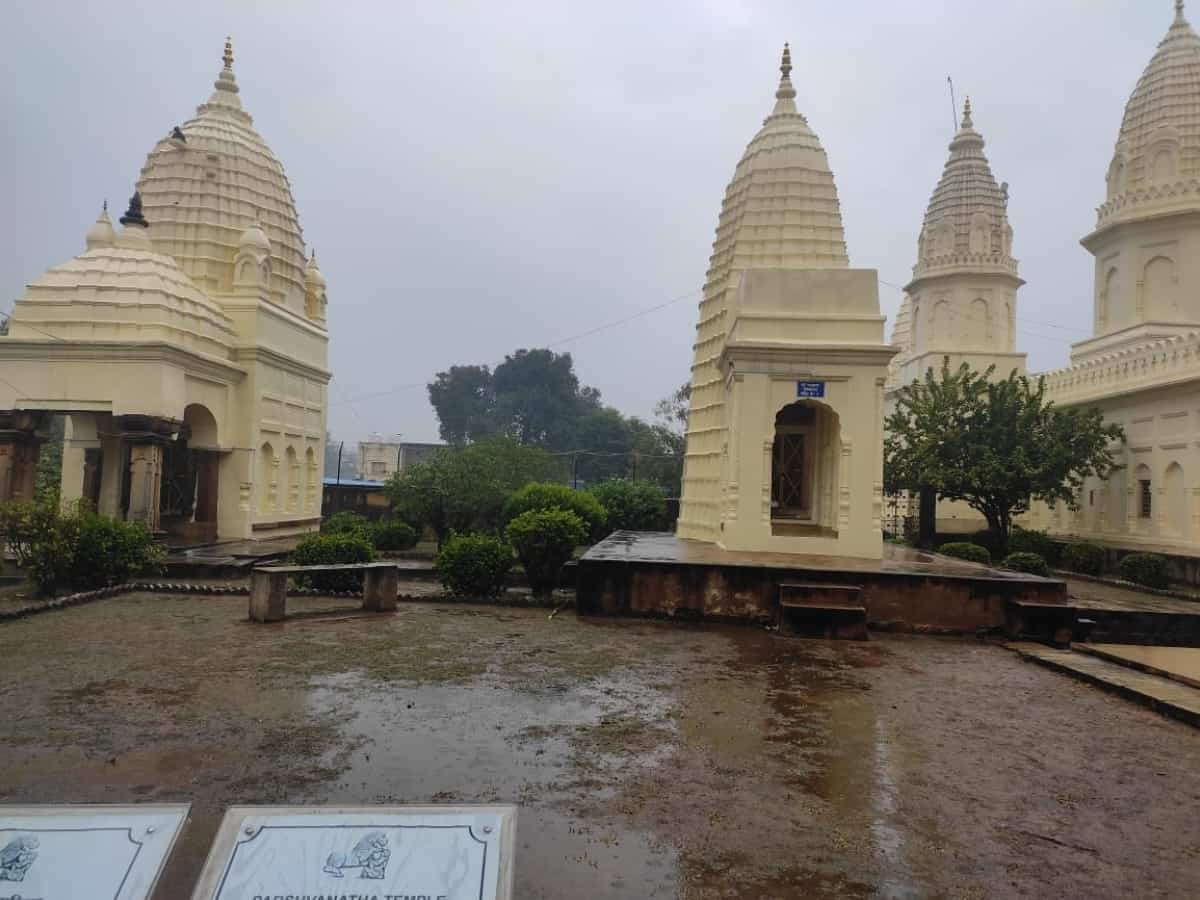
Mumbai/Khajuraho: Taking cognizance of a complaint by a Maharashtra heritage expert, the Archaeological Survey of India (ASI) is probing allegations of certain activities reported from the vicinity (buffer zone) of the ancient Khajuraho Temples – a UNESCO World Heritage site.
The quiet development follows objections by the Jalgaon-based Heritage Foundation Director Bhujang Bobade to the ASI Director-General, Madhya Pradesh ASI officials, Prime Minister Narendra Modi and others.
Bobade said in his complaint that a group of Jain Temples in the close proximity of the Khajuraho Temples have recently carried out certain minor renovations and used chemical/synthetic paints.
“This poses a severe threat to the safety of the 11-12 centuries old Khajuraho Group of Monuments, comprising two dozen temples. They were declared a UNESCO World Heritage Site in 1986 and accorded global protection. Surprisingly, not a single concerned authority has bothered to acknowledge my email complaints so far,” a miffed Bobade told IANS.
It was in December 2021-January 2022 that locals were taken aback to witness painting and minor repairs being undertaken on the equally ancient cluster of Jain Temples outside the Khajuraho Group of Monuments, but falling within the �buffer zone’ of the UNESCO World Heritage site.
“As per UNESCO rules, there is a minimum 300-metre �buffer zone’ around all such World Heritage Sites, where no such activities that can potentially harm the designated protected monuments are permitted. The Jain Temples here have apparently flouted the rules,” claimed Bobade.
Social media was agog with viral photos and videos of the facelift work that has now given the old Jain Temples a sparkling white fa�ade — barring two, the Parshvanath and Adinath Temples — a sharp contrast to the dark-greyish brown demeanour of the world heritage complex beside, and later confirmed in a site visit by IANS.
When contacted, the ASI Jabalpur Circle Head Dr Shivkant Bajpeyi said that the Jain Temples do not come under their jurisdiction and hence they don’t interfere in their activities.
“However, after the concerns raised in certain quarters, we have sought a �Status Report’, which has been received. After studying it we shall examine further measures,” Bajpeyi told IANS.
The temple trustees vehemently denied having effected any repairs-renovation but admitted that the Jain Temples around the Khajuraho complex were given a makeover with a coat of fresh paint.
“This is a part of the regular maintenance that is carried out periodically, as required� This is not the first time and we have painted these temples in the past,” asserted the Jain Temple Prabandhan Committee (JTPC) Member Ramesh Jain to IANS.
When asked why the Parshvanath and Adinath Temples were spared the brush and paint, Jain said those two temples are managed by the ASI. A cross-check by IANS with the local ASI office verified the claim.
ASI officials in Delhi said that the JTPC has been demanding that the ASI hand over the remaining two (Parshvanath and Adinath) temples for proper upkeep, but that would not be possible on several grounds.
Now, with the ostensible blessings of a prominent Digambar Jain guru, Acharya Shri Vidyasagarji Maharaj, a new Jain temple is also being constructed, some 300-350 metres from the boundaries of the existing Jain temples, near the Khajuraho Group of Monuments, sparking concerns afresh in officialdom.
The Acharya is revered by top politicians including the Prime Minister, Madhya Pradesh Chief Minister Shivraj Singh Chouhan, Union Minister Jyotiraditya Scindia and other bigwigs across the political spectrum.
The Jain Temples are described as �live monuments’ with top religious leaders and commoners congregating or praying and celebrating festivals there.
Bobade cautioned that if the UNESCO rules are flouted, it could lead to forfeiture of the �World Heritage Site’ tag, resulting in a huge embarrassment for India, and urged that prompt remedial steps be taken to protect the Khajuraho Temples, its identified �buffer zone’ plus the coveted title.
Built during the reign of the Chandela Dynasty, the Khajuraho complex is the largest concentration of medieval Hindu and Jain temples, coming up over 11 centuries ago.
Originally, the site comprised 85 Khajuraho Temples sprawled across 20 sq kms, but now barely two dozen temples survive in a 6 sq km area.
The temples are noted for their intricate, detailed carvings, symbolism, stunning erotica and the expressions of ancient Indian art that continue to amaze the modern world.



